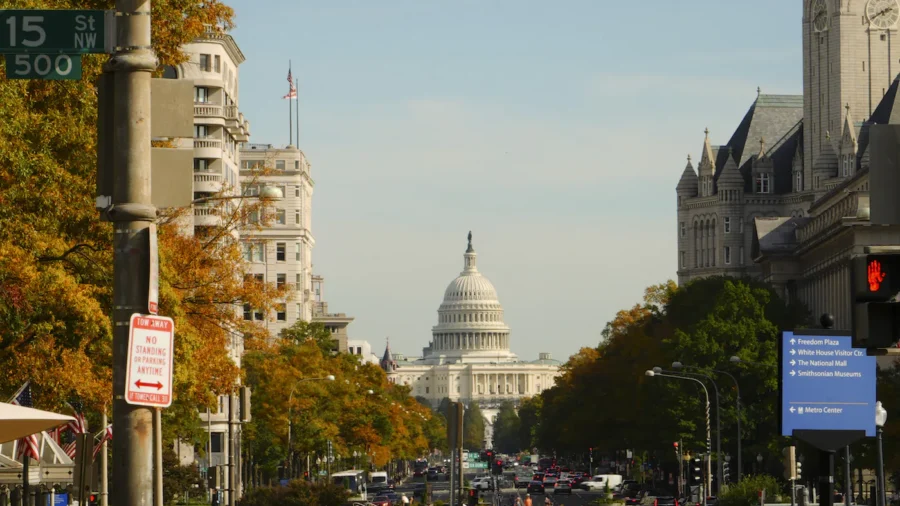The House in a partisan Nov. 1 vote advanced a $5.3 billion Legislative Branch appropriations measure that cuts spending for Congressional operations by more than $1.5 billion from this year’s budget.
With the adoption of HR 4364, the Legislative Branch Appropriations Act, the House has now approved six of the 12 appropriations packages that constitute the annual federal budget.
Democrats in committee hearings had argued that proposed cuts in the Legislative Branch budget, which funds the Capitol Police, the Library of Congress, the Congressional Budget Office, and administrative support for Congress, will not pass muster in the Democrat-led Senate.
But there was no floor debate or commentary in the 214-197 floor vote that sent the smallest of the 12 annual budget bills to the Senate, further cementing the certainty of a budget showdown between the chambers in the final days—if not the waning hours—before a temporary measure now funding federal agencies that expires Nov. 17.
The Legislative Branch budget was approved by the House Rules Committee in a partisan 9-4 Oct. 2 tally. The only agency under the House plan to receive a funding increase is the Capitol Police with a $781 million fiscal year (FY) 2024 budget that is $46 million more than this year’s plan.
During the Oct. 2 hearing, Rep. Adriano Espaillat (D-N.Y.) said the bill “keeps the lights on” for Congress, but does little to make the Capitol secure or inclusive.
“This bill, just as with the other 12 appropriations bills, contains provisions that eliminate diversity, equity, and inclusion programs, and allow for discrimination towards the LGBTQI plus community,” Mr. Espaillat said. “Republicans are obsessed with cutting federal funds and eliminating programs that help to grow and diversify our country.”
When it became apparent Congress would not adopt a new budget before the fiscal year began on Oct. 1, it passed on stopgap funding bill, known as a continuing resolution (CR), to keep the federal government funded at current spending levels for 45 days.
Before conceding to the CR, the House advanced four appropriations packages: its $17.5 billion Military Construction-Veterans Affairs budget; $886.3 billion National Defense Authorization Act, or annual defense budget; $91.5 billion Homeland Security spending plan; and $52.5 billion State Department budget.
The Defense, Homeland Security, and State Department House budgets were adopted on Sept. 28. The proposed $22.5 billion farm bill was shot down in a 237-191 vote that same day. All but the defense budget feature double-digit spending cuts.
The adoption of the Sept. 30 CR prompted the dramatic ouster of Speaker Kevin McCarthy (R-Calif.) days later, which then led to three weeks of dysfunction and daily drama that paralyzed the House before Republicans selected Rep. Mike Johnson (R-La.) as speaker on Oct. 25.
The following day, the House adopted its $57 billion Energy and Water Development appropriations package, the fifth of the 12 spending bills.
The chamber now has just over two weeks to move six more spending measures and begin negotiations with the Senate to develop a FY24 budget both chambers can approve. Government funding is set to expire six days before Thanksgiving.
In an Oct. 23 letter to fellow Republicans before he was elected speaker, Mr. Johnson said since the Senate had not approved any FY24 bills the House should rapidly approve its bills with their spending cuts to negotiate “from a position of strength” in forcing the Senate to accept some of the trims. The Senate voted to pass its first spending package on Nov. 1.
The House is likely to see at least two more FY24 appropriations packages up for floor votes before week’s end, perhaps as soon as Nov. 2.
The House Rules Committee in late Nov. 1 partisan votes advanced HR 4820, the proposed $90.24 billion FY24 Transportation, Housing, and Urban Development Appropriations Act, and HR 4821, the proposed $34.8 billion Department of the Interior FY24 spending plan.
From The Epoch Times

